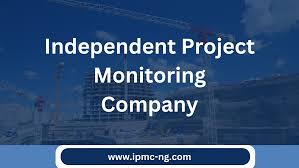

Banks, Insurers encouraged to implement ESG for enhanced efficiency
By Esther Agbo
The Independent Project Monitoring Company (IPMC) has urged banks and insurance firms to adopt environmental, social, and governance (ESG) practices to boost operational efficiency in the country.
This recommendation was made during the launch of the new ESG Ratings Report in Lagos.
IPMC highlighted that the ESG Ratings Report aids financial institutions in making informed decisions regarding sustainable investments.
The report evaluates environmental impact, social responsibility, and corporate governance to provide a comprehensive view of a company’s sustainability performance.
These assessments are customized to meet the specific needs of clients, whether they require individual company evaluations or industry comparisons.
The methodology is transparent, incorporating industry best practices, regulatory frameworks, and stakeholder engagement.
Part of the reports reads, “To this end, organizations that integrate ESG into their operations will also help benchmark business performance.”
The report emphasizes that integrating ESG into operations can help organizations benchmark and improve business performance.
ESG consultant, Agatha Afemikhe elaborated on the report’s methodology and data sources, stating that the assessment was developed in response to the rising importance of ESG in the financial sector.
Banks and insurers are integrating ESG considerations into their operations, risk management, and reporting to align with evolving regulations and expectations.
The Chief Executive Officer of IPMC, Ade-Odiachi, underscored the growing acceptance of ESG principles in modern business, noting that companies are increasingly committed to sustainability in response to global challenges.
Ade-Odiachi stressed the importance of genuine commitment to ESG, warning against superficial adherence.
He explained that adopting sustainable practices not only benefits businesses but also contributes to a more responsible future.
ESG practices help organizations manage risks such as regulatory fines, supply chain disruptions, and reputational damage.
He said, “For example, addressing environmental risks can protect against regulatory fines, supply chain disruptions and reputational damage.”
The Special Advisor to the Chairman of the National Economic Council and Climate Change, Office of the Vice President, Rukaiyah El-Rufai, in her keynote address highlighted the significance of ESG metrics in guiding companies towards sustainability.
She noted that investors, consumers, and regulators are increasingly prioritizing ESG, and companies excelling in these areas are better positioned for long-term success.




